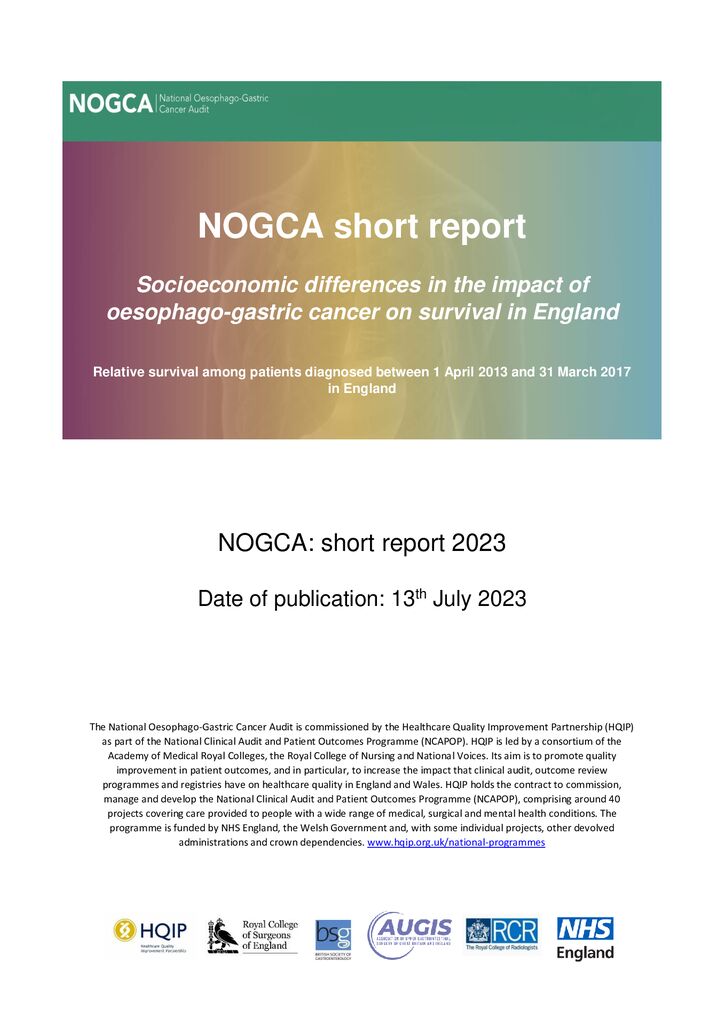Socioeconomic differences in the impact of oesophago-gastric cancer on survival in England (NOGCA)
The National Oesophago-Gastric Cancer Audit (NOGCA) has published a report on Socioeconomic differences in the impact of oesophago-gastric cancer on survival in England which looks at the relative survival among 39,167 patients diagnosed between April 2013 and March 2017. It found that relative survival of all patients with oesophago-gastric (OG) cancer was poor among the NOGCA cohort, at less than 20% at five years from diagnosis. Among patients with a plan for curative treatment, 5-year relative survival was over 40%.
However, there was a socioeconomic gradient in relative 5-year survival across the deprivation groups, from 19.8% in the least deprived group to 15.4% in the most deprived. A gradient was also evident among patients who had a plan for treatment with curative intent (43.2% in the least deprived and 40.3% in the most deprived group), and at one year from diagnosis among patients with a non-curative treatment plan (28.6% in least deprived and 25.4% in most deprived). A greater proportion of patients in the least deprived group had a plan for curative treatment (41% vs 24% in most deprived), but differences in stage at diagnosis were not observed across the deprivation groups.
After adjusting for performance status, the “deprivation gap” in 5-year relative survival was reduced, with the adjusted relative survival being estimated at 18.4% in the least deprived group and 17.9% in the most deprived. This suggests that patient fitness makes an important contribution to the observed differences in relative survival among patients with OG cancer in different socioeconomic deprivation groups.
Read the full report: You can read the report by clicking on the link below.
Stay up-to-date: For notifications of future reports from HQIP, sign up to our mailing list.


